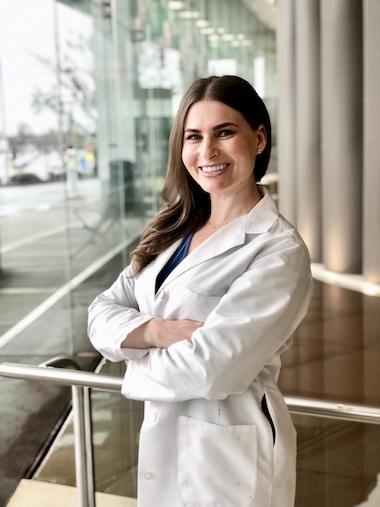Placing empathy at the center of dental care
Dr. Laurel Henderson triple certified in orofacial pain, oral pathology, oral medicine

Laurel Henderson, D.D.S., brings a rare combination of expertise and empathy to dentistry, holding certifications in orofacial pain, oral and maxillofacial pathology, and oral medicine.
Although orofacial pain is newly recognized, Dr. Henderson said this specialty is the most healing discipline in dentistry because it requires dentists to empathize, understand and connect with their patients in order to come to a diagnosis. The ability to address deep-seated trauma and mental health conditions is profoundly rewarding and one of the reasons Dr. Henderson decided to pursue orofacial pain in the first place, she said.
Orofacial pain is medically analogous to psychiatry, neurology, rheumatology and physical therapy, Dr. Henderson said. The discipline encompasses the diagnosis, management and treatment of pain disorders of the jaw, mouth, face, head and neck. It also helps patients feel understood in a way they don’t necessarily get in other dental settings.
“I get to talk to people and figure out what’s really hurting them, which is not necessarily obvious. I love that it’s one of the most intimate dental specialties,” Dr. Henderson said. “For the most part, it’s the conversation you have and the rapport you build that actually heals people, much more than the medicines or the procedures.”
Dr. Henderson is a clinical assistant professor and the director of oral medicine at Boston University Henry M. Goldman School of Dental Medicine. She is currently developing a clinical service focused on oral oncology that supports cancer patients by managing side effects from chemotherapy, immunotherapy, radiation therapy and surgery.
Dr. Henderson highlighted the critical role of the orofacial pain specialty, noting that it often identifies medical conditions before they are diagnosed by other medical providers. She encouraged those interested in it to pursue specialization rather than rely solely on continuing education courses.
“Even though orofacial pain existed for over 50 years before ADA recognition, it is recognized now, and it’s so much more than jaw joints,” Dr. Henderson said. “There’s a reason why we have specialists, and for anybody who is interested in practicing orofacial pain, residency and [American Board of Orofacial Pain] certification are crucial steps to take for patient safety.”



